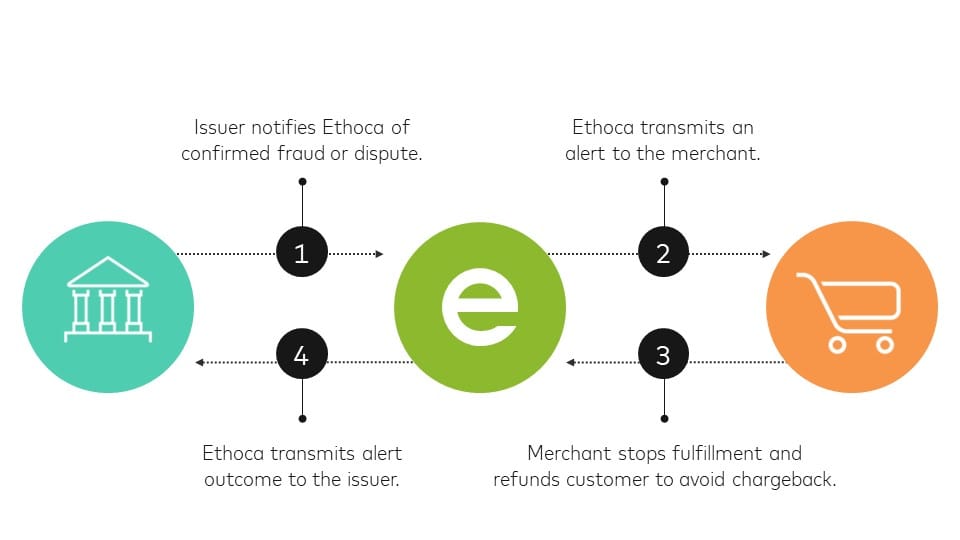
SuperPay helps alternative medicine professionals like yourself get paid as quickly as possible. Choose our platform to power your payments & billing.
Alternative medicine has gained significant popularity in recent years as people seek alternative approaches to their healthcare. This holistic approach focuses on treating the whole person, rather than just the symptoms, and often incorporates natural remedies and therapies. While alternative medicine has been practiced for centuries, advancements in technology have opened up a new realm of possibilities for this field. In this blog post, we will explore the role of technology in advancing alternative medicine and discuss some of the innovative tech solutions that are transforming the way we approach healthcare. From telemedicine and artificial intelligence to virtual reality and wearable tech, these innovations are revolutionizing the alternative medicine landscape. Join us as we delve into the exciting world of tech innovations for alternative medicine and discover how they are shaping the future of healthcare.
Understanding Alternative Medicine: A Brief Overview
Alternative medicine, also known as complementary and integrative medicine, encompasses a wide range of practices and therapies that are used in conjunction with or as an alternative to conventional medical treatments. The fundamental principle behind alternative medicine is the belief in treating the individual as a whole, addressing not only the physical symptoms but also the mental, emotional, and spiritual aspects of health.
One of the key principles of alternative medicine is the emphasis on prevention and promoting self-care. It encourages individuals to take an active role in their own health by making lifestyle changes, practicing stress management techniques, and adopting healthy habits. This proactive approach aims to support the body's natural healing abilities and prevent illness from occurring in the first place.
Alternative medicine draws from various traditional healing systems and practices from different cultures around the world. Some of the most commonly used modalities include herbal medicine, acupuncture, chiropractic care, naturopathy, Ayurveda, homeopathy, and traditional Chinese medicine. These practices often utilize natural remedies, such as herbs, vitamins, minerals, and other dietary supplements, to promote healing and restore balance in the body.
While alternative medicine has been met with both praise and skepticism, it is important to note that many complementary therapies have been scientifically studied and proven effective in certain conditions. In fact, some alternative therapies have been integrated into mainstream medicine, such as acupuncture for pain management and mindfulness-based stress reduction for mental health.
Alternative medicine is not meant to replace conventional medical treatments, but rather to complement them. It is often used alongside conventional medicine to enhance its effectiveness, minimize side effects, and improve overall well-being. This integrative approach allows for a more personalized and comprehensive approach to healthcare, taking into account the unique needs and preferences of each individual.
In the next sections, we will explore the role of technology in advancing alternative medicine and how innovative tech solutions are revolutionizing the field. By harnessing the power of technology, alternative medicine is becoming more accessible, efficient, and evidence-based, paving the way for a new era of healthcare.
Role of Technology in Advancing Alternative Medicine
Technology has played a crucial role in advancing alternative medicine, transforming the way healthcare is delivered and enhancing the effectiveness of various therapies and treatments. From improving access to care to enhancing diagnostic capabilities and facilitating personalized treatments, technology has opened up new possibilities and revolutionized the field of alternative medicine. In this section, we will explore how technology is changing alternative medicine, the types of technologies used, and the benefits and challenges of implementing technology in this field.
How Technology is Changing Alternative Medicine
Technology has brought about significant changes in the practice of alternative medicine, making it more accessible, efficient, and evidence-based. Here are some ways in which technology is transforming the field:
Telemedicine and Online Platforms: Telemedicine allows practitioners to provide remote consultations and deliver care to patients who may be geographically distant. Online platforms and video conferencing enable patients to access alternative medicine services from the comfort of their homes, removing barriers of travel and increasing convenience.
Electronic Health Records (EHR): EHR systems have streamlined the documentation and management of patient information, making it easier for alternative medicine practitioners to track and analyze patient data. This allows for better monitoring of treatment progress, identification of trends, and improved patient outcomes.
Health Monitoring Devices: Wearable devices, such as fitness trackers and smartwatches, can provide valuable data on a patient's vital signs, activity levels, sleep patterns, and more. This information can be utilized by alternative medicine practitioners to gain insights into a patient's overall health and customize treatment plans accordingly.
Artificial Intelligence (AI) and Machine Learning: AI algorithms and machine learning techniques are being used to analyze large datasets and identify patterns and correlations. In alternative medicine, AI can assist in diagnosing conditions, predicting outcomes, and suggesting personalized treatment plans based on individual characteristics.
Virtual and Augmented Reality: Virtual and augmented reality technologies have found applications in alternative medicine, particularly in pain management, stress reduction, and therapy. These immersive technologies can create virtual environments that aid in relaxation, distraction, and visualization techniques.
Types of Technologies Used in Alternative Medicine
A wide range of technologies are utilized in alternative medicine to improve patient care and outcomes. Some of the key technologies include:
Telemedicine Platforms: Video conferencing software, secure messaging platforms, and remote monitoring tools enable virtual consultations and follow-ups, connecting patients with alternative medicine practitioners regardless of their location.
Electronic Health Records (EHR) Systems: Specialized EHR systems designed for alternative medicine practitioners help manage patient records, treatment plans, appointments, and billing in a digital format, improving efficiency and accuracy.
Health Monitoring Devices: Wearable devices such as fitness trackers, heart rate monitors, and sleep trackers provide real-time data on a patient's health and activity levels, enabling practitioners to monitor progress and make informed decisions.
Artificial Intelligence (AI) and Machine Learning: AI algorithms and machine learning models analyze patient data, medical literature, and historical records to assist in diagnosis, treatment selection, and outcome prediction. This technology can provide valuable insights and improve decision-making.
Virtual and Augmented Reality: Virtual reality headsets and augmented reality applications are used to create immersive environments for pain management, stress reduction, and therapy sessions. These technologies can enhance relaxation, visualization, and mindfulness techniques.
Benefits and Challenges of Implementing Technology
Implementing technology in alternative medicine brings numerous benefits, but it also presents challenges that need to be addressed. Let's explore some of the advantages and potential hurdles:
Benefits:
Improved Access: Technology allows patients to access alternative medicine services from anywhere, overcoming geographical barriers and increasing convenience.
Enhanced Efficiency: Digital records, telemedicine, and automated processes streamline administrative tasks, saving time and resources for both practitioners and patients.
Personalized Care: Technology enables the collection and analysis of individual patient data, facilitating personalized treatment plans and better outcomes.
Evidence-Based Practice: By leveraging AI and machine learning, technology helps practitioners make data-driven decisions and stay up-to-date with the latest research and evidence.
Challenges:
Privacy and Security: Protecting patient data and maintaining confidentiality is crucial when implementing technology. Robust security measures must be in place to safeguard sensitive information.
Integration with Conventional Medicine: Integrating technology into existing healthcare systems and working collaboratively with conventional medicine practitioners can present challenges in terms of interoperability and coordination of care.
Costs and Accessibility: The cost of implementing and maintaining technology can be a barrier for some alternative medicine practitioners. Additionally, not all patients may have access to the necessary devices or internet connectivity.
Regulatory Considerations: As technology advances, regulations and guidelines need to be established to ensure ethical and responsible use of technology in alternative medicine.
In the next section, we will delve into specific innovative tech solutions that are revolutionizing alternative medicine and transforming the way healthcare is delivered.

Innovative Tech Solutions in Alternative Medicine
Innovative tech solutions are revolutionizing alternative medicine, providing new avenues for diagnosis, treatment, and patient care. These technologies are transforming the way healthcare is delivered and enabling practitioners to enhance the effectiveness of alternative therapies. In this section, we will explore some of the key innovative tech solutions that are making a significant impact in alternative medicine.
Telemedicine and Online Platforms
Telemedicine has emerged as a game-changer in alternative medicine, allowing practitioners to provide remote consultations and deliver care to patients regardless of their location. Online platforms and video conferencing software enable practitioners and patients to connect virtually, eliminating the need for in-person visits. This technology has proven especially beneficial for individuals in remote areas or those with limited mobility. Through telemedicine, alternative medicine practitioners can assess patients, provide guidance, and monitor progress, all from the comfort of their own homes.
Artificial Intelligence and Machine Learning
Artificial intelligence (AI) and machine learning (ML) are transforming the landscape of alternative medicine by analyzing vast amounts of data and providing valuable insights. AI algorithms can assist in diagnosing conditions, predicting treatment outcomes, and suggesting personalized treatment plans based on individual characteristics. By analyzing patient data, medical literature, and historical records, AI can identify patterns, correlations, and potential treatment options that may not be immediately apparent to human practitioners. This technology not only enhances the accuracy of diagnoses but also helps in tailoring treatments to individual patients, improving overall outcomes.
Virtual and Augmented Reality
Virtual reality (VR) and augmented reality (AR) technologies are finding applications in alternative medicine, particularly in pain management, stress reduction, and therapy sessions. VR creates immersive environments that can be used to distract patients from pain, reduce anxiety, and enhance relaxation. It can transport individuals to serene natural landscapes or guide them through visualization exercises. AR overlays digital information onto the real world, allowing practitioners to provide real-time guidance and instructions during procedures or therapies. These technologies have shown promising results in improving patient experience, reducing discomfort, and enhancing the effectiveness of alternative treatments.
Wearable Tech and Mobile Apps
Wearable devices, such as fitness trackers and smartwatches, are not only popular for tracking physical activity but also play a significant role in alternative medicine. These devices monitor vital signs, sleep patterns, stress levels, and other health parameters, providing valuable data to practitioners. By analyzing this data, alternative medicine practitioners can gain insights into a patient's overall health and well-being, enabling them to make more informed decisions regarding treatment plans. Additionally, mobile applications (apps) are being developed to provide personalized guidance, reminders, and educational resources related to alternative medicine practices. These apps offer convenience and support to individuals seeking alternative approaches to their healthcare.
In the next section, we will explore real-world case studies that demonstrate the practical applications of these innovative tech solutions in alternative medicine. These examples will showcase the potential of technology to revolutionize patient care and improve outcomes in the field of alternative medicine.
Case Studies: Real World Applications of Tech in Alternative Medicine
Real-world case studies provide valuable insights into the practical applications of technology in alternative medicine. These examples demonstrate how innovative tech solutions are being utilized to improve patient care, enhance treatment outcomes, and revolutionize the field. In this section, we will explore a few notable case studies that showcase the impact of technology in alternative medicine.
AI in Chinese Medicine Diagnosis
Chinese medicine, with its focus on holistic approaches and individualized treatments, has embraced the use of artificial intelligence (AI) for diagnosis. One notable case study is the integration of AI into the diagnosis of traditional Chinese medicine (TCM) patterns. By analyzing patient symptoms, medical history, and other relevant data, AI algorithms can assist practitioners in identifying TCM patterns and providing tailored treatment recommendations. This technology helps improve diagnostic accuracy, reduce subjectivity, and enhance the precision of treatment plans. The combination of AI and TCM holds great promise for personalized and effective healthcare.
VR Therapy for Pain Management
Virtual reality (VR) has shown remarkable potential in pain management, particularly in alternative medicine approaches. In a case study conducted at a pain clinic, patients with chronic pain were immersed in virtual environments that provided distraction, relaxation, and visualization techniques. The VR experience helped reduce pain intensity and improve overall well-being. By redirecting the patient's attention and creating an immersive and engaging experience, VR therapy offers a drug-free and non-invasive alternative for pain management.
Mobile Apps for Meditation and Mindfulness
Mobile apps have become popular tools for promoting meditation and mindfulness practices, which are integral components of alternative medicine. Case studies have demonstrated the effectiveness of mobile apps in guiding individuals through meditation sessions, providing reminders, and offering educational resources. These apps allow users to access guided meditations, track their progress, and incorporate mindfulness practices into their daily routines. By making meditation more accessible and convenient, mobile apps are empowering individuals to take control of their mental and emotional well-being.
These case studies highlight just a few examples of how technology is being applied in alternative medicine, bringing significant benefits to patients and practitioners alike. By harnessing the power of AI, VR, and mobile apps, alternative medicine is evolving to provide more personalized and effective care. These innovative tech solutions have the potential to revolutionize healthcare delivery and improve outcomes in the field of alternative medicine.
In the next section, we will explore the future prospects of tech innovations in alternative medicine and discuss how these advancements will shape the future of healthcare.
Future Prospects: How Tech will Shape the Future of Alternative Medicine
The future of alternative medicine is closely intertwined with advancements in technology, which will continue to shape and redefine the field. As we look ahead, it becomes evident that tech innovations will play a pivotal role in expanding the possibilities of alternative medicine and transforming the healthcare landscape. In this section, we will explore the future prospects of tech innovations in alternative medicine and discuss the potential impact on healthcare.
Predictions for Future Tech Innovations
Advanced AI and Machine Learning: AI algorithms and machine learning models will become more sophisticated, enabling practitioners to make more accurate diagnoses, predict treatment outcomes with greater precision, and develop personalized treatment plans tailored to individual patients.
Data Integration and Interoperability: Technology will facilitate seamless integration of patient data from various sources, including electronic health records, wearable devices, and patient-reported outcomes. This comprehensive approach will provide practitioners with a holistic view of the patient's health, enabling more informed decisions and personalized care.
Virtual Reality Advancements: VR technology will continue to evolve, offering more immersive and realistic experiences. This will enhance the effectiveness of VR therapy for pain management, stress reduction, and mental health treatment. VR may also be utilized for training purposes, allowing practitioners to simulate and practice alternative medicine techniques in a virtual environment.
Expansion of Telemedicine: Telemedicine will become more prevalent, allowing patients to access alternative medicine services from anywhere in the world. This will improve access to care, particularly for individuals in remote areas or those with limited mobility. Additionally, telemedicine platforms will incorporate advanced features such as real-time monitoring and interactive tools to enhance the remote consultation experience.
The Role of Research and Development
Research and development will play a crucial role in driving tech innovations in alternative medicine. Continued research initiatives will focus on validating the effectiveness of various alternative therapies, integrating technology into practice, and exploring new possibilities for improving patient outcomes. Collaboration between alternative medicine practitioners, technology developers, and researchers will foster innovation and ensure that tech solutions are evidence-based and aligned with best practices.
Potential Impact on Healthcare
The integration of technology in alternative medicine has the potential to bring about significant changes in healthcare as a whole. Here are some potential impacts:
Personalized Medicine: By leveraging technology to collect and analyze patient data, alternative medicine practitioners will be able to provide highly personalized treatments, tailored to the individual's unique needs, preferences, and genetic makeup.
Preventive Care: Technology can empower individuals to take a proactive approach to their health by providing tools for self-monitoring, lifestyle management, and early detection of potential health issues. This shift towards preventive care can lead to improved health outcomes and reduced healthcare costs.
Collaborative Care: Integration of technology will facilitate seamless collaboration and communication between alternative medicine practitioners and conventional healthcare providers. This interdisciplinary approach will lead to better coordination of care and improved patient outcomes.
Patient Empowerment: Technology empowers patients to take an active role in their own healthcare. Access to information, self-monitoring tools, and educational resources enable individuals to make informed decisions, actively participate in their treatment plans, and lead healthier lifestyles.
In conclusion, the future of alternative medicine is bright with the integration of technology. As tech innovations continue to advance, alternative medicine will become more accessible, personalized, and evidence-based. With a focus on research and development, collaboration, and patient empowerment, the synergy between technology and alternative medicine will shape the future of healthcare, offering new possibilities for holistic and effective patient care.


